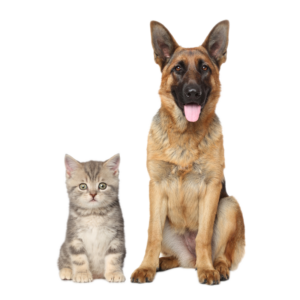Are Essential Oils Safe to Use Around My Pets?
Many people frequently use essential oils via a diffuser in their homes for their own aromatherapy or therapeutic use, whether it is to help them sleep at night, provided a relaxing environment, or even to help with the common cold. Some also choose to use essential oils directly onto their pets as they believe they provide a natural flea and tick repellent. However, many do not realize that the use of certain essential oils may not be safe for their beloved pets. Every individual pet is different and some may experience a more severe reaction to a particular oil than compared to another pet. Our pets also have a significantly higher sense of smell than we do–even a subtle aroma to us is far more noticeable to our pet. To your pet, this may be like sitting next to someone who is wearing a very strong scent or too much perfume.
Essential Oils that are NOT SAFE for dogs:
• Clove
• Garlic
• Juniper
• Rosemary
• Tea tree
• Thyme
• Wintergreen
• Oregano
Essential Oils that are NOT SAFE for cats:
• Cassia
• Cinnamon
• Lemon
• Citrus
• Clove
• Eucalyptus
• Lavender
• Peppermint
• Tea tree
• Thyme
• Spruce
• Pennyroyal
• Birch
Safety Tips when using essential oils around your pets:
1. Consult your veterinarian before the use of essential oils around your pets.
2. Use EXTRA caution with the use of essential oils around cats. Cats do not possess the liver enzymes that humans do, making it very difficult for cats to metabolize essential oils and increasing the risk of toxicity.
3. Do not apply essential oils to the skin or fur of your pet. Your pet may have a negative skin reaction that can include chemical burns, irritation, and redness. Your pet may also groom or lick themselves on the application site (ingesting the essential oil), which can lead to toxicity.
4. Pets should always have a place in the home that they can go to that has good ventilation and is free from any kind of scents/essential oils. If you use essential oils in your bedroom at night, leave the door open so that your pet is not trapped breathing in the essential oils and can go somewhere else if the scent becomes over-bearing for them.
5. If you are using an essential oil that is safe for pets, make sure it is a high quality “therapeutic grade” and does not contain any other additives or chemicals that may harm your pet. Essential oils MUST be diluted when using a diffuser.
6. Essential oil diffusers should be out of reach from pets to avoid it being accidentally knocked over and coming into contact with the oils. The concentrated essential oils should be kept out of access to pets.
There is a popular belief that essential oils can be used as a repellent for fleas and ticks. This involves diluting an essential oil into either a carrier oil or distilled water or vinegar and then spraying it onto your pet. Not only would these ‘repellents’ be irritating to your pet’s skin and potentially cause a negative reaction, but most ‘repellant recipes’ use oils that are considered as not safe to use on your pet. There are no scientific studies that support the use of essential oils as an effective use against fleas and ticks. Also, by using something that is not supported as an effective method of prevention, you are putting your pets at risk to contract fleas, ticks, and other parasites.
Written by Brittany, ACA



